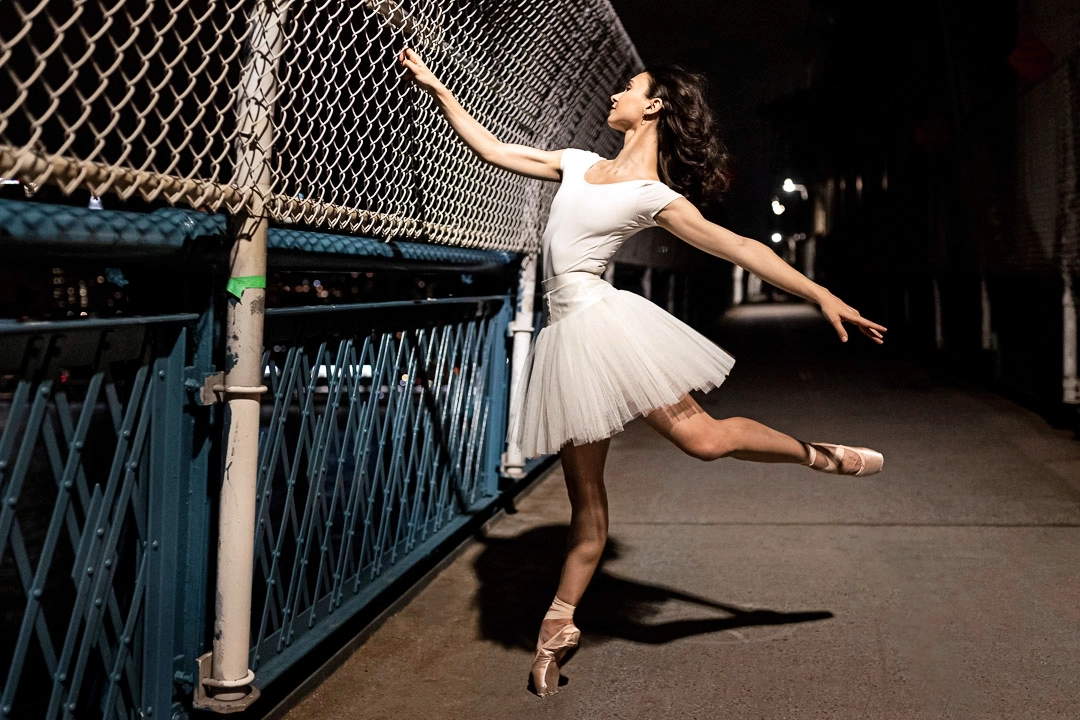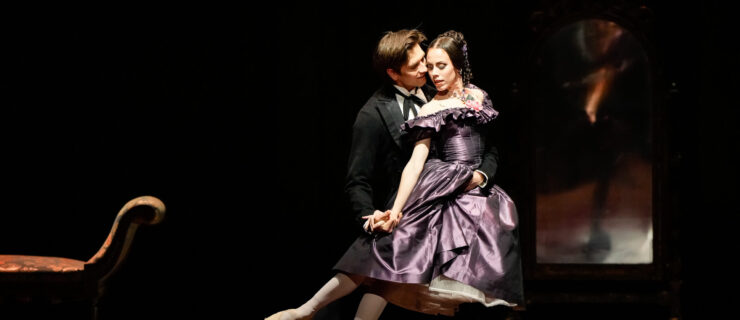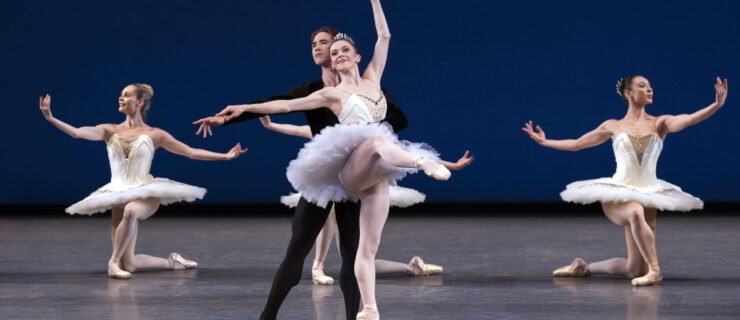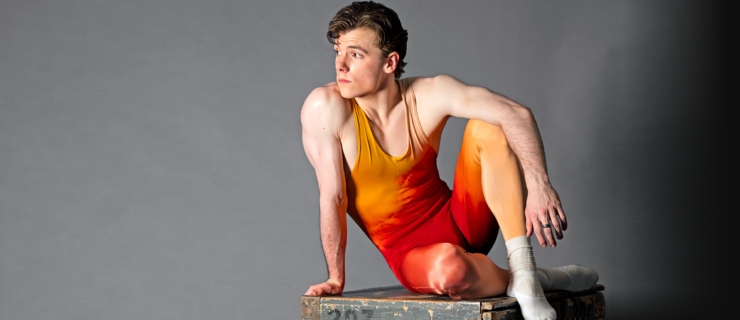No Company Contract After Months of Auditions? Here’s How I’ve Learned to Keep Pursuing My Dreams.
As performance seasons begin, we often hear about the new dancers joining companies and others who got big promotions. But nobody talks about those dancers who find themselves without a contract—without a place to be, to train, to dance, and to perform.

During my early career, I would typically audition for over 20 companies, only to leave empty-handed. After graduating from ballet school in Brazil, I came to New York City in 2013 to join the Joffrey Ballet Concert Group. I finished my dance training with the Steps on Broadway International Independent Study Program in 2018. Once I received my artist visa, I worked with project-based companies such as MorDance and Neglia Ballet. I performed the role of Lise Dassin on the national tour of An American in Paris, and I am about to start my first contract with The Metropolitan Opera. With the right connections and professionalism, I manage to be a full-time dancer based in New York City, but a position in a full-time ballet company has always eluded me.
Without a company contract, you’d think a dancer like myself would feel discouraged and start questioning their future in the industry. But my passion for this art form is immeasurable, so here’s how I have learned to keep pursuing my dreams.
Motivation Can Only Get You So Far
As driven as I am, it can be exhausting to constantly fight for my art. Some days are easier than others, but I have moments when I really struggle.
Since I am not an American citizen and have a hard body shape and bone structure to work with, opportunities haven’t always come easy to me. As a result, I’ve learned how to appreciate small moments that others might take for granted: a day at the studio, for example, or a new pair of pointe shoes, or being able to perform with close friends. What others may not notice, I see as inspiration and motivation. These things remind me of how lucky I am to be able to call dance my profession, whatever form it might currently have.
Audition Smarter, not More Often
When I was younger, I’d audition for as many companies as possible. Usually, I wouldn’t hear back from them, or if I did, they’d say the typical “Unfortunately, we cannot offer you a position at this time.” I remember searching the company’s emails for the word “unfortunately,” because I simply knew it was coming. And I started to feel numb towards rejection.
I don’t audition as much as I used to anymore. I’ve made enough connections with dancers from different companies that I am able to ask them directly about current openings. Now I only go to an audition if I know the director is looking for a dancer like myself and actually has spots available, or if it’s a dream company and I would like them to watch me dance for future opportunities. With time, I’ve learned to select my auditions according to my career goals.
I also now realize that the grass isn’t always greener on the other side. When I’m considering an audition, I’ll ask dancers I know in the company if they enjoy working there. They aren’t always happy; sometimes they even ask me about my dance life in New York City.
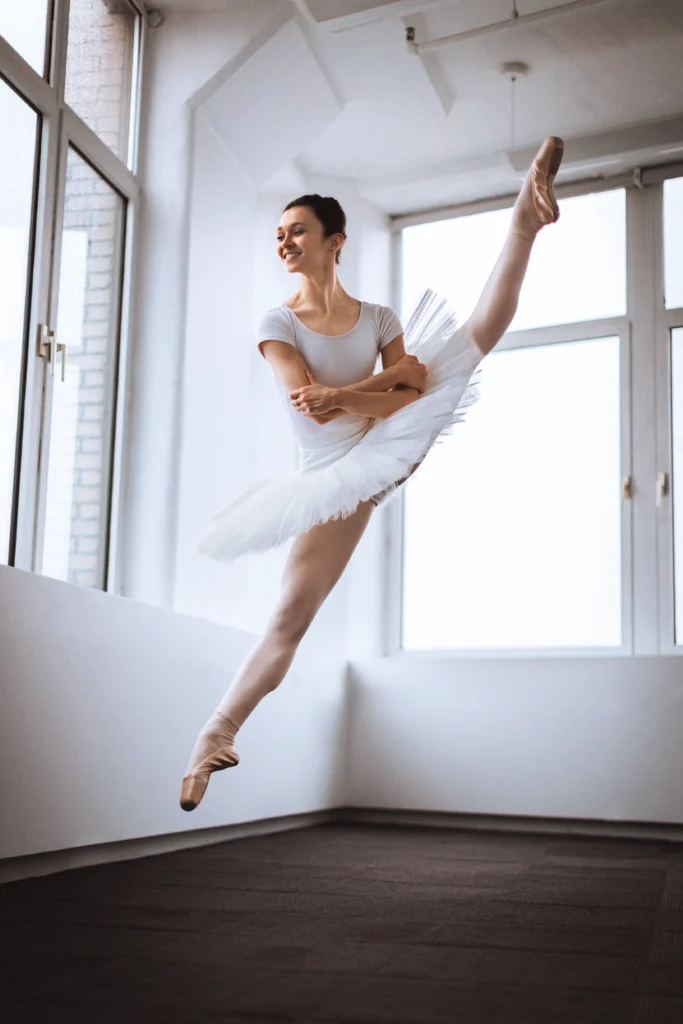
When All Doors Are Locked, Open Your Own Door
When there are no opportunities, you need create your own.
Today I consider myself a full-time dancer even though I don’t work for only one company. I make my living working with choreographers and project-based companies, performing in dance films, consulting dancewear brands, and teaching.
Once you start networking, it’s easier to make strong and significant connections. One of the ways that I do that is by showing up to class. It’s the perfect place to make friends, ask questions, and tell people you are looking for dance opportunities. You’d be surprised by how people can help by putting you in touch with or recommending you to others, especially in the beginning. One gig can lead to another as your name gets out there. It takes time to build a network, but today I get to choose who I work for, which is amazing.
What Is an Artist Without Art?
I think we all have discouraging moments where we think, What if I just quit and did something else? Instead, I ask myself: Who would I be without my art? To be honest, I don’t have an answer for that. I can’t visualize life without dance, and without expressing myself through dance.
If you’re contemplating quitting, I invite you to dance one more time. If you still love it, then trust your gut and keep going. There are ways to keep dancing. It’s okay to question your career choice, but remind yourself why you fell in love with dance in the first place and know that we don’t all need to follow the same path. We can create our own; knowing that is liberating.
Perhaps every no I’ve gotten over the years has built my biggest strength: I like challenges and being challenged. I like proving that I can do something I wasn’t able to before, or that I was initially too scared to try. As frightening as it is, rejection pushes me to get up and try again, regardless of the outcome.
What’s the worst that can happen? I learn a new skill, I make stronger connections, I dance. I believe that is a pretty good problem to have.
